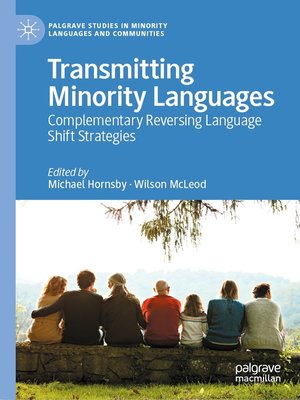Transmitting Minority Languages
ebook ∣ Complementary Reversing Language Shift Strategies · Palgrave Studies in Minority Languages and Communities
By Michael Hornsby

Sign up to save your library
With an OverDrive account, you can save your favorite libraries for at-a-glance information about availability. Find out more about OverDrive accounts.
Find this title in Libby, the library reading app by OverDrive.



Search for a digital library with this title
Title found at these libraries:
| Library Name | Distance |
|---|---|
| Loading... |
This book gives fresh insight into the diverse ways in which the transmission of minority and heritage languages is carried out in a range of sociolinguistic contexts. When traditional modes of intergenerational transmission begin to break down, minority language and diaspora communities resort to other modes of transmission, out of necessity, to complement traditional mechanisms and secure language maintenance. This volume brings together a broad range of studies of these alternative modes of transmission, examining the complex and diverse practical, ideological and personal challenges that arise in different settings. Beyond addressing the dynamics of language use within the home and family, the book also emphasises the importance of the participation of the minority community itself in language and cultural transmission. These mechanisms and initiatives, sometimes overlooked or dismissed in the academic literature, will prove to be essential in maintaining and ensuring the survival of minority and heritage languages into the 21st century and beyond. The twelve chapters in the book are divided into four sections (intergenerational transmission; transmission in post-traditional families; alternatives to 'traditional' transmission; and transmission in diasporic contexts), and the language contexts, both minoritised and diasporic, which are discussed include Basque, Breton, Galician, Guernesais, Irish, Māori, Russian, Scottish Gaelic, Sorbian and Spanish. This book will be of interest to students and scholars of sociolinguistics, language acquisition, heritage language maintenance and revitalization, and language policy and planning.







